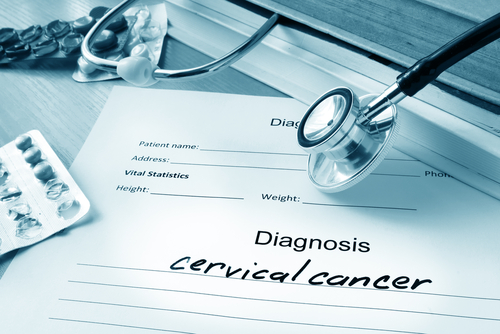Cervical cancer is the result of changes in the cell DNA caused by long-term Human Papilloma Virus (HPV) infection. Cancer-causing HPV, especially types 16 and 18, is a group of virus that can be acquired through sexual activity. Symptoms can include pain during sexual intercourse, abnormal vaginal bleeding, abnormal vaginal discharge, and pain in the pelvis or lower belly.
Cervical cancer remains the second most common cancer among Filipinas. In fact, 12 Pinays die of cervical cancer every day, which is an unfortunate statistic, considering that cervical cancer is also one of the most preventable type among all cancers.
There are different ways you can keep cervical cancer away. Here are some:
1.Get yourself vaccinated.
HPV vaccines are now available. Doctors recommend that it’s best for girls to be vaccinated before they become sexually active, ideally between ages 11 and 12. However, all women as young as 9 years old can already be vaccinated, sexually active or not. The vaccine is conducted in three parts: the second shot should be done a month or two after the first one, and the third should be done six months after the second shot.
2.If you’re a smoker, quit. If you’re a non-smoker, avoid second-hand smoke.
Studies proved again and again that cigarette smoke can increase the chances of cancers, including cervical cancer. Quitting might be hard, but it can improve your overall health and reduce the chances of you having any kind of cancer.
3.Regular screenings are essential.
Women need to have pap smear and HPV test to ensure the health of their cervix.The American Cancer Society recommends this guideline for screenings:
●For women aged 21 to 29, get a pap smear every three years.
●For women aged 30 to 65, it’s best if you get a pap smear and HPV test every five years.
●For women aged 66 above, you can stop testing if you had regular testing for the past ten years and no pre-cancers in the past 20 years. However, if you didn’t have regular testing or there were pre-cancers in your past results, it’s best if you talk to your doctor about testing.
●For women who had hysterectomy and with the cervix removed, you can stop testing, unless the surgery was done to treat cervical cancer or pre-cancer.
These steps will only help you avoid cervical cancer if you do them regularly, especially your screenings. The screenings are vital to keeping your reproductive health in check. ManilaMed is willing to help you keep up with your screenings.
Contact ManilaMed’s Center for Women’s Health at (02) 523 8131 loc 3100 /3101 or 0917 831 4892 or you can also visit their website at www.manilamed.com.ph.for more information.









